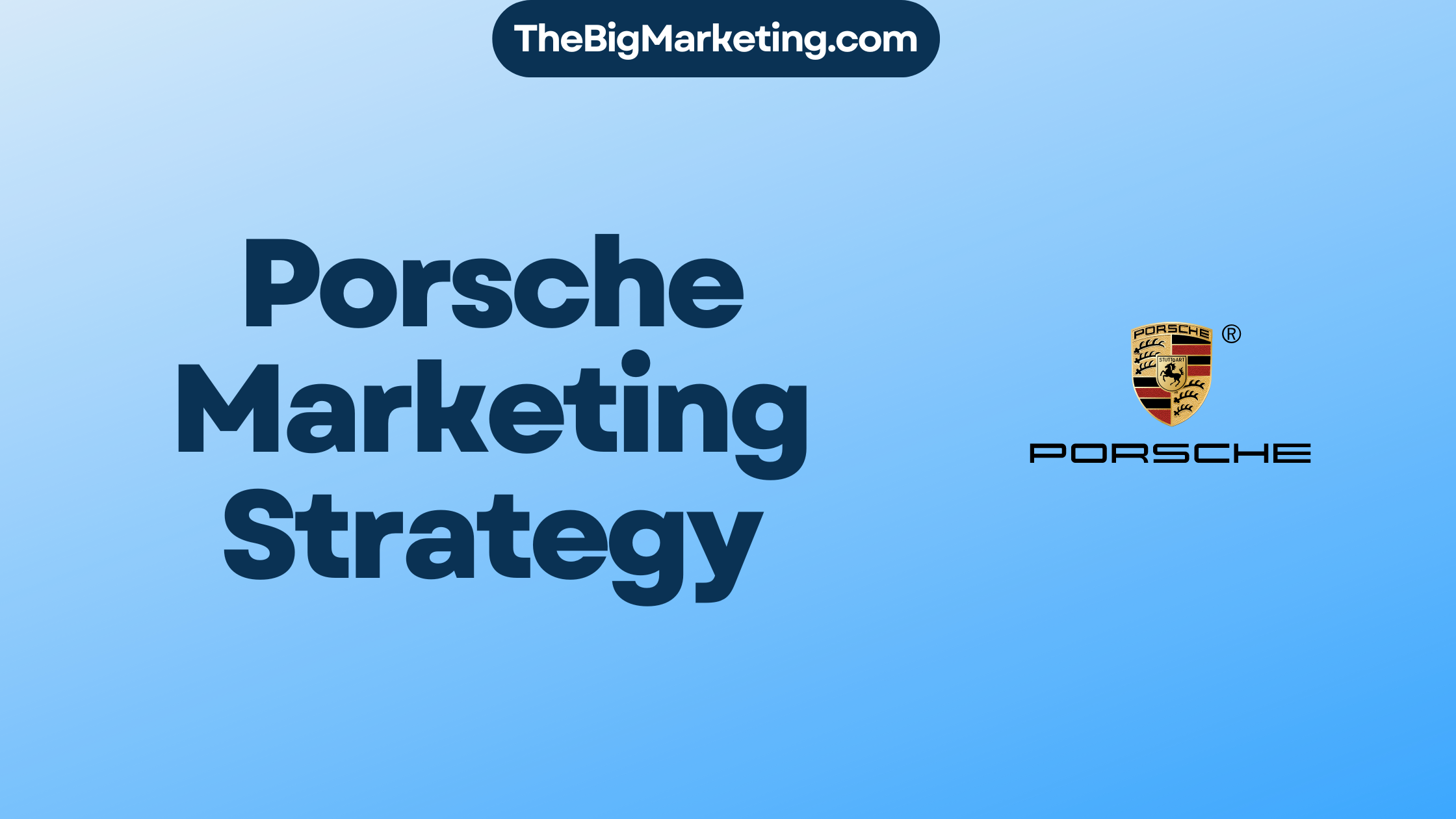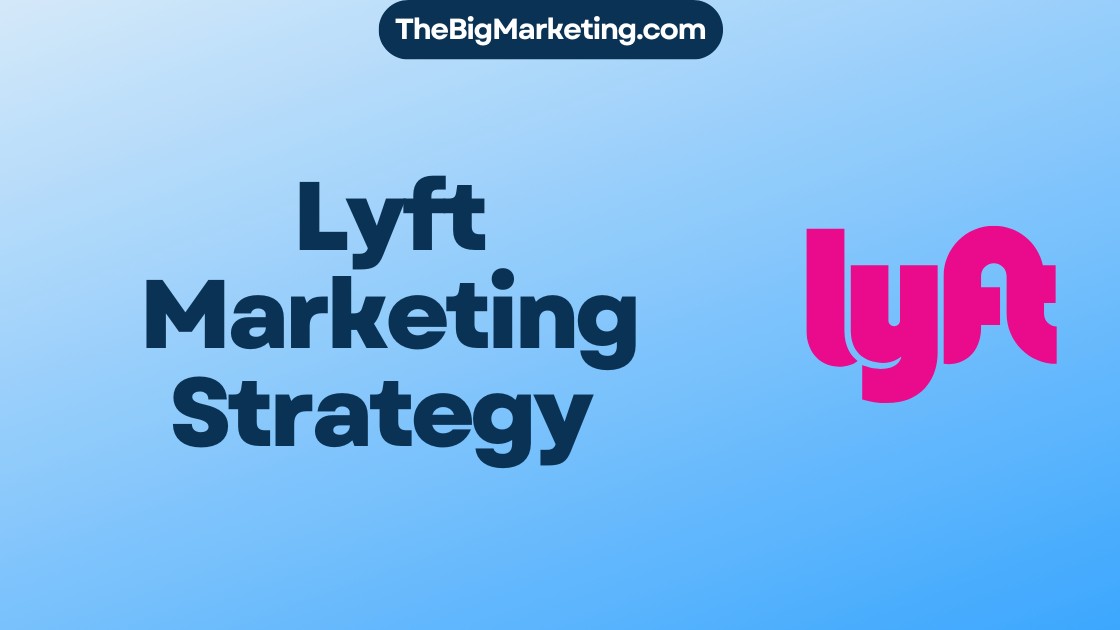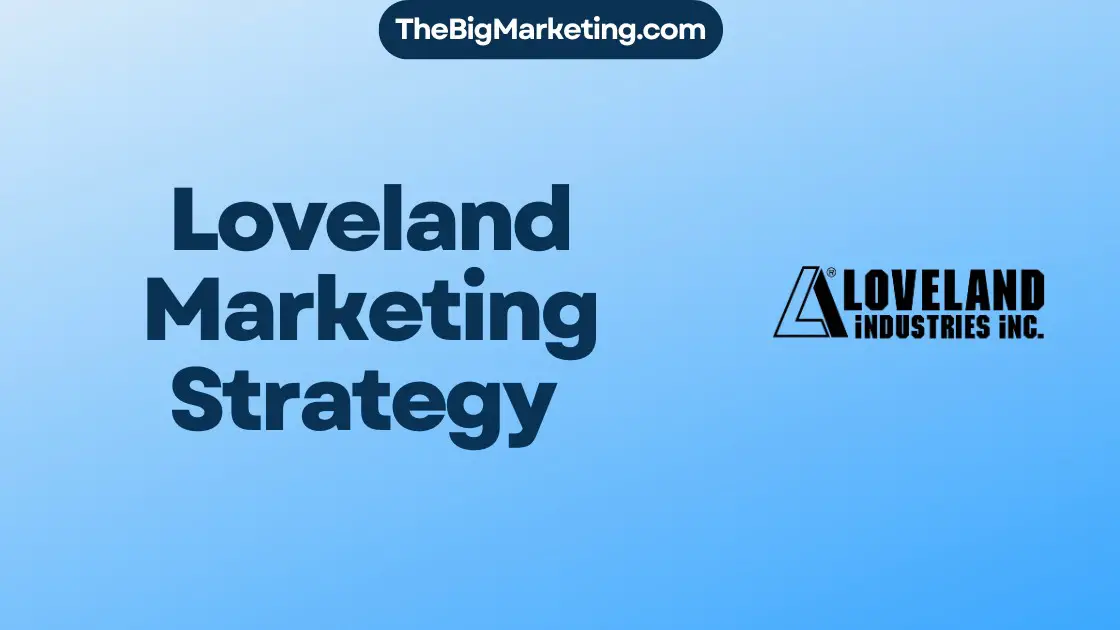A targeted industrial marketing strategy is key to increasing sales and revenue in today’s industrial marketplace. In today’s economy, having a solid strategy to guide your industrial marketing efforts is more important than ever. Your website and digital marketing can amplify your brand, drive leads, and bring in qualified prospects. Industrial marketing focuses on B2B scenarios, promoting industrial goods and services to other businesses. Industrial marketing strategies need to consider the complexity of products, niche audiences, long sales cycles, multiple personas, and the transition from traditional selling to internet marketing.
Key Takeaways:
- Implementing a targeted industrial marketing strategy is crucial for increasing sales and revenue in the industrial marketplace.
- Digital marketing and website optimization can amplify your brand and attract qualified leads.
- Industrial marketing focuses on B2B scenarios, promoting goods and services to other businesses.
- Industrial marketing strategies need to consider complex products, niche audiences, long sales cycles, and multiple personas.
- The transition from traditional selling to internet marketing is important for staying competitive in 2024.
What is an Industrial Marketing Strategy?
An industrial marketing strategy is a comprehensive approach for businesses operating in the B2B space to effectively promote their goods and services to other businesses. It involves setting clear goals, devising strategic tactics, implementing plans, evaluating performance, learning from experiences, and continuously improving marketing efforts. Industrial marketing strategies are specifically tailored to cater to the unique needs and requirements of businesses, focusing on generating demand and driving sales.
To develop a successful industrial marketing strategy, businesses must thoroughly understand their target audience, identify the most effective channels to reach them, and create compelling messaging that highlights the value they offer. It’s crucial to align marketing efforts with the complex nature of industrial products and services, the long sales cycles typically involved, and the shifting landscape that encompasses both traditional and digital marketing.
By adopting an industrial marketing strategy, businesses can maximize their reach, engage prospects, generate leads, and ultimately increase their chances of success in the competitive B2B marketplace. A well-executed strategy allows businesses to capitalize on opportunities and optimize their marketing efforts to drive revenue growth.
What’s Unique about an Industrial Marketing Strategy?
Industrial marketing strategies differ from other forms of marketing due to a variety of unique factors. These strategies are specifically tailored to address the complexities of industrial products and services, niche audiences, long sales cycles, multiple personas, and the transition from traditional selling to internet marketing.
Complex Products and Services
Industrial products and services often involve complex technical specifications and require an educational approach to effectively communicate their value to potential customers. Marketers must have a deep understanding of the products and services they are promoting in order to address customer concerns and establish credibility.
Niche Audiences
In industrial marketing, the target audience is typically a specific industry or application, known as a niche audience. This requires marketers to employ targeted marketing efforts that resonate with the unique needs and challenges of these niche audiences. It involves understanding the industry-specific language, pain points, and purchasing processes to effectively engage and convert prospects.
Long Sales Cycles
The industrial sector often experiences longer sales cycles compared to other industries. This is because the decision-making process involves multiple stakeholders, extensive research, and evaluation of different options. Marketers must be patient and focus on building relationships and providing valuable information throughout the entire sales cycle to establish trust and credibility with potential customers.
Multiple Personas
In industrial marketing, there are typically multiple personas involved in the buying process. These personas may include decision-makers, influencers, technical experts, and users. Each persona has different priorities, needs, and pain points, and marketers must tailor their messaging and content to effectively address the concerns of each persona throughout the sales cycle.
Transitioning to Internet Marketing
The industrial marketing landscape is undergoing a transition from traditional selling methods to internet marketing. This shift is driven by changing buyer behaviors and the increasing importance of online channels for research and information gathering. Marketers must adapt to this changing landscape by embracing digital practices, such as search engine optimization (SEO), content marketing, social media, and lead generation strategies to reach and engage their target audience online.
| Aspect | Description |
|---|---|
| Complex Products and Services | Educational approach to explain and understand |
| Niche Audiences | Specific to industries or applications, requiring targeted marketing efforts |
| Long Sales Cycles | Multiple stakeholders, extensive research, and evaluation |
| Multiple Personas | Different priorities, needs, and pain points |
| Transitioning to Internet Marketing | Embracing digital practices to reach and engage target audience online |
Why is Industrial Marketing Important in 2024?
In 2024, the importance of industrial marketing has never been more evident. With the ongoing digital transformation and the evolving expectations of the younger generation, industrial companies must adapt their marketing strategies to stay competitive and reach their target audience effectively.
The digital revolution has drastically changed the way people gather information and conduct research. More and more, potential customers rely on digital channels to find the products and services they need. This shift in behavior means that industrial companies must embrace digital marketing practices to ensure they are accessible to their target audience and able to provide the information and resources they seek.
By investing in industrial marketing and leveraging digital transformation, companies can differentiate themselves from their competitors and stay ahead in the fast-paced industrial landscape. They can enhance their online presence, reach a wider audience, and build trust and credibility with potential customers.
Furthermore, the younger generation, which is increasingly becoming the decision-makers in many industries, has different expectations when it comes to information accessibility. They expect instant access to relevant information, seamless digital experiences, and personalized content. Industrial marketers must meet these expectations to capture the attention and loyalty of the younger generation.
To summarize, industrial marketing is essential in 2024 because it enables companies to leverage the digital transformation, stay competitive in the market, reach the younger generation, and meet their expectations of information accessibility. By embracing industrial marketing strategies, companies can position themselves as industry leaders and drive sustainable growth in the ever-evolving industrial sector.
Key Components of an Industrial Marketing Strategy
An effective industrial marketing strategy consists of several key components that work together to promote and position a company in the B2B marketplace. These components include positioning, identifying the ideal customer profile (ICP) and personas, and website optimization.
Positioning
Positioning is a critical aspect of an industrial marketing strategy as it establishes a company’s unique identity, key offerings, and differentiation in the market. It involves understanding the target audience and determining how the company can fulfill their needs better than competitors. A well-defined positioning strategy helps a company stand out, effectively communicate its value proposition, and attract the right customers.
Identifying the Ideal Customer Profile (ICP) and Personas
To tailor marketing efforts and effectively reach the target audience, it is essential to identify the ideal customer profile (ICP) and personas. The ICP is a specific description of the ideal customer based on various parameters such as industry, company size, location, and pain points. Personas, on the other hand, provide a more detailed understanding of the target audience by creating fictional representations of the different types of customers a company serves. By understanding the ICP and personas, companies can develop targeted marketing messages and strategies that resonate with their audience, capturing their attention and driving engagement.
Website Optimization
Website optimization plays a crucial role in an industrial marketing strategy. A well-optimized website is user-friendly, provides a seamless browsing experience, and showcases relevant and valuable content. It involves ensuring the website is easy to navigate, has clear calls-to-action, and loads quickly. Additionally, optimizing the website for search engines, including relevant keywords, meta tags, and alt text for images, improves visibility in search engine results. By prioritizing website optimization, companies can attract organic traffic, engage visitors, and generate leads.
| Key Components of an Industrial Marketing Strategy | Description |
|---|---|
| Positioning | Defines the company’s identity, key offerings, and differentiation to stand out in the market. |
| Identifying the Ideal Customer Profile (ICP) and Personas | Helps target marketing efforts by defining the ideal customer profile and creating personas to understand the different types of customers. |
| Website Optimization | Involves optimizing the company’s website for a user-friendly experience, search engine visibility, and lead generation. |
Marketing Trends in the Industrial Sector
In today’s rapidly evolving industrial landscape, staying up-to-date with the latest marketing trends is crucial for businesses to remain competitive. This section explores the key marketing trends shaping the industrial sector, including:
1. Personalization
Personalization is revolutionizing the way industrial companies connect with their target audience. By tailoring marketing efforts to individual preferences and needs, companies can deliver customized experiences that resonate with potential customers. Personalization can be achieved through targeted email campaigns, personalized website content, and tailored product recommendations.
2. AI-driven technologies
Artificial Intelligence (AI) is transforming industrial marketing by providing advanced capabilities such as lead segmentation, data analysis, and predictive content generation. AI-driven technologies help companies gain valuable insights into customer behavior, enabling them to optimize their marketing strategies and deliver more impactful campaigns.
3. Thought leadership content
Establishing thought leadership through valuable content is an effective way to build brand authority and loyalty in the industrial sector. Thought leadership content positions companies as industry experts, providing valuable insights, industry trends, and solutions to common challenges. This type of content can take the form of whitepapers, research reports, webinars, and blog articles.
4. Video marketing
Video marketing is becoming increasingly popular in the industrial sector, allowing companies to engage their audience with product demos, educational videos, and captivating visual content. Industrial businesses can leverage video marketing to showcase their products, explain complex processes, and highlight their expertise, fostering stronger connections with potential customers.
5. Chatbots
Chatbots are AI-powered tools that provide instant support and engagement to website visitors. Industrial companies can use chatbots to answer frequently asked questions, provide product information, and guide potential customers through their purchasing journey. Chatbots enhance customer experience by providing real-time assistance and streamlining communication.
Implementing these marketing trends can benefit industrial companies by increasing brand visibility, driving customer engagement, and generating high-quality leads. Embracing innovative strategies and leveraging technology can position industrial businesses at the forefront of their industry, helping them achieve sustained growth in today’s competitive landscape.
| Trends | Benefits |
|---|---|
| Personalization | – Increased customer engagement – Improved conversion rates – Enhanced customer loyalty |
| AI-driven technologies | – Efficient lead segmentation – Data-driven insights and decision-making – Predictive content generation |
| Thought leadership content | – Building brand authority – Establishing credibility and trust – Fostering customer loyalty |
| Video marketing | – Engaging and educating the audience – Showcasing product features and benefits – Building emotional connections |
| Chatbots | – Instant customer support – Improved customer experience – 24/7 availability |
Challenges in Adopting Marketing Trends
Adopting marketing trends in the industrial sector presents various challenges that businesses need to navigate. These challenges include:
- The balance between personalization and privacy regulations
- Maintaining trust and reputation
- Keeping up with rapidly advancing technology
- Differentiating from competitors
Striking a balance between personalization and privacy regulations is a delicate task. Businesses must find ways to personalize their marketing efforts while adhering to strict privacy regulations to protect customer data.
Maintaining trust and reputation is crucial for industrial companies. Transparency and authenticity are key to building and preserving trust among customers and stakeholders.
Keeping up with rapidly advancing technology is a challenge in itself. Industrial companies must continuously invest in digital tools and platforms to stay current and leverage technology effectively.
Differentiating from competitors and finding new growth opportunities can be difficult but necessary for success. Industrial companies need to identify their unique selling points and explore innovative strategies to stand out in the market.
The Importance of Maintaining Trust and Reputation
Maintaining trust and reputation is essential for industrial companies in the digital age. As privacy regulations become more stringent, customers place a high value on companies that handle their personal information with care and respect.

| Benefits of Maintaining Trust and Reputation | Actions for Building and Maintaining Trust |
|---|---|
|
|
Strategies to Address Marketing Challenges
Successfully navigating marketing challenges in the industrial sector requires implementing effective strategies. By allocating the budget wisely, investing in employee training and development, fostering internal communication and change management, collaborating with industry partners, implementing continuous monitoring and adjustments, and seeking external support from experts or consultants, industrial companies can overcome these challenges and ensure the successful adoption of marketing trends.
1. Budget Allocation
Allocating the budget wisely is essential for maximizing marketing efforts. By conducting thorough market research and analysis, companies can identify the most effective channels and tactics that provide the highest return on investment (ROI). This data-driven approach helps optimize budget allocation and ensures that resources are allocated to the areas with the greatest potential for success.
2. Employee Training and Development
Investing in employee training and development equips the marketing team with the necessary skills and knowledge to navigate the ever-evolving digital landscape. By staying up-to-date with the latest marketing strategies, technologies, and industry best practices, employees can effectively implement marketing campaigns, drive results, and adapt to changing market dynamics.
3. Internal Communication and Change Management
Fostering strong internal communication and change management processes is crucial for aligning marketing efforts with overall business objectives. Creating a collaborative environment where ideas can be shared, feedback can be received, and strategies can be refined helps ensure that marketing initiatives are in sync with the company’s vision and goals.
| Benefits of Internal Communication and Change Management | Challenges of Internal Communication and Change Management |
|---|---|
|
|
4. Collaboration with Industry Partners
Collaborating with industry partners can provide valuable insights, access to new networks, and opportunities for co-marketing initiatives. By leveraging the expertise and resources of complementary businesses, industrial companies can expand their reach, tap into new markets, and create mutually beneficial partnerships that drive growth and success.
5. Continuous Monitoring and Adjustments
Implementing continuous monitoring and adjustments ensures that marketing strategies remain relevant and effective. By regularly tracking key performance indicators (KPIs), analyzing data, and assessing the impact of marketing efforts, companies can make data-driven decisions, optimize campaigns, and stay ahead of competitors.
6. External Support from Experts or Consultants
Seeking external support from marketing experts or consultants can provide fresh perspectives, specialized knowledge, and objective insights. Engaging professionals with experience in the industrial sector can help overcome specific challenges, identify untapped opportunities, and enhance the overall effectiveness of marketing strategies.
Incorporating these strategies into marketing initiatives empowers industrial companies to tackle challenges head-on, stay competitive, and drive sustainable growth in the dynamic industrial marketplace.
The Importance of Online Marketing for Industrial Companies
Online marketing plays a crucial role in the success of industrial companies, offering a wide range of advantages and opportunities. In the ever-evolving digital landscape, it has become essential for industrial companies to embrace online marketing strategies to stay competitive and effectively reach their target audience.
One of the key advantages of online marketing for industrial companies is its cost-effectiveness. Compared to traditional marketing methods, online marketing offers a more cost-effective way to promote products and services. With targeted digital advertising campaigns, companies can optimize their marketing budgets and maximize their return on investment (ROI).
Tracking ROI is another significant benefit of online marketing. Through various analytics and tracking tools, industrial companies can measure the effectiveness of their marketing campaigns in real-time. This allows them to make data-driven decisions and allocate resources where they are most productive, resulting in more efficient marketing efforts and improved overall performance.
Experimentation for Continuous Growth
Online marketing also provides industrial companies with a unique opportunity for experimentation. With digital platforms and tools, companies can test different marketing strategies, messages, and creative approaches to identify what works best for their specific target audience and industry. A/B testing, for example, allows companies to compare the performance of two variations of an ad or landing page to determine the most effective version.
Experimentation in online marketing enables industrial companies to continuously refine their strategies and adapt to changing market dynamics. It fosters a culture of innovation and improvement, positioning companies at the forefront of their industries and giving them a competitive edge.
Furthermore, the shift in buyer behavior towards online research makes online marketing essential for industrial companies. Today, a significant portion of the industrial buying process happens online, with buyers conducting extensive research and seeking information before making purchasing decisions. By effectively implementing online marketing strategies, industrial companies can connect with their target audience during the research phase, influence their decision-making process, and drive them towards choosing their products or services.
With the numerous advantages it offers, online marketing has become a vital component of the marketing strategy for industrial companies. Its cost-effectiveness, ability to track ROI, opportunities for experimentation, and the ability to reach potential customers during the research phase make it an indispensable tool for driving business growth and success in the industrial sector.
| Advantages of Online Marketing for Industrial Companies |
|---|
| Cost-effective compared to traditional marketing methods |
| Ability to track ROI in real-time |
| Opportunities for experimentation and continuous improvement |
| Reach potential customers during the research phase |
Conclusion
To effectively market in the industrial sector, companies need to implement marketing strategies that focus on digital channels, website optimization, content creation, and personalization. As the industrial marketplace becomes increasingly competitive, it is crucial for companies to leverage digital marketing to amplify their brand and drive sales. By optimizing their websites for better visibility and user experience, industrial companies can enhance their online presence and attract qualified prospects.
Content creation is another key aspect of industrial marketing strategies. By creating informative and engaging content that addresses the pain points and challenges of their target audience, companies can establish themselves as thought leaders in their industry. This thought leadership content not only helps build brand authority but also nurtures trust with potential customers.
Emerging trends such as personalization, AI-driven technologies, video marketing, and chatbots offer exciting opportunities for industrial companies to connect with their target audience on a deeper level. Personalization allows companies to deliver tailored experiences and messaging to their prospects, increasing engagement and conversion rates. AI-driven technologies can assist in lead segmentation, data analysis, and predictive content generation, enabling companies to make data-driven marketing decisions. Video marketing provides a dynamic and visual way to showcase products and educate customers. Chatbots offer instant support and interaction, enhancing customer experience and satisfaction.
By embracing these marketing strategies and emerging trends, industrial companies can navigate the ever-evolving industrial landscape, stay competitive, and drive robust growth in the sector. With cost-effective advertising options and the ability to optimize their online presence, industrial companies have the tools they need to succeed in today’s digital era.
FAQ
What is an Industrial Marketing Strategy?
An industrial marketing strategy is the practice of applying a method to the madness of marketing in the B2B space. It involves setting specific goals, planning tactics, executing, measuring, learning, and improving. Industrial marketing specifically focuses on promoting goods and services to businesses that require them.
What’s unique about an Industrial Marketing Strategy?
Industrial marketing strategies have unique aspects compared to other forms of marketing. Industrial products and services are often complex and require an educational approach to explain and understand. Niche audiences are specific to industries or applications and require targeted marketing efforts. Long sales cycles and multiple personas are common in the industrial sector, requiring relationship-building and trust-building over time. Industrial marketing is also transitioning from traditional selling to internet marketing, embracing digital practices for growth.
Why is Industrial Marketing important in 2024?
Industrial marketing is more important than ever in 2024 due to the digital transformation and the expectations of the younger generation. The reliance on digital channels for information and research is increasing, and companies that excel in digital marketing will outpace the competition. Industrial marketers need to adapt to the changing landscape and provide information and resources that are easily accessible to potential customers.
What are the key components of an Industrial Marketing Strategy?
The key components of an industrial marketing strategy include positioning, identifying the ideal customer profile (ICP) and personas, and optimizing the website for efficient marketing. Positioning defines the company’s identity, key offerings, and differentiation. Identifying the ICP and personas helps target marketing efforts to the right audience. Website optimization ensures that the website is user-friendly, with a focus on user experience, content strategy, and underlying technology.
What are the marketing trends in the Industrial Sector?
Marketing trends in the industrial sector include personalization, using AI-driven technologies, creating thought leadership content, leveraging video marketing, and implementing chatbots. Personalization allows companies to deliver tailored experiences to their target audience. AI-driven technologies help with lead segmentation, data analysis, and predictive content generation. Thought leadership content builds brand authority and loyalty. Video marketing engages the audience with product demos and educational videos. Chatbots provide instant support and engagement.
What are the challenges in adopting marketing trends in the Industrial Sector?
Several challenges in adopting marketing trends in the industrial sector include striking a balance between personalization and privacy regulations, maintaining trust and reputation through transparency and authenticity, keeping up with rapidly advancing technology, and differentiating from competitors and finding new growth opportunities.
What are the strategies to address marketing challenges in the Industrial Sector?
Strategies to address marketing challenges in the industrial sector include allocating the budget wisely, investing in employee training and development, fostering internal communication and change management, collaborating with industry partners, implementing continuous monitoring and adjustments, and seeking external support from experts or consultants.
Why is online marketing important for industrial companies?
Online marketing is crucial for industrial companies as it allows them to reach more potential customers, track ROI, and experiment with different methods. It is more cost-effective than traditional marketing methods and provides opportunities for testing and learning without significant financial risks. The shift in buyer behavior towards online research makes online marketing essential for industrial companies.
How can industrial companies effectively market in the industrial sector?
To effectively market in the industrial sector, companies need to implement marketing strategies that focus on digital channels, website optimization, content creation, and personalization. The emerging trends of personalization, AI-driven technologies, thought leadership content, video marketing, and chatbots provide opportunities for industrial companies to stay competitive and connect with their target audience. By embracing these strategies and trends, industrial companies can amplify their brand, increase sales, and foster robust growth in the industrial sector.








